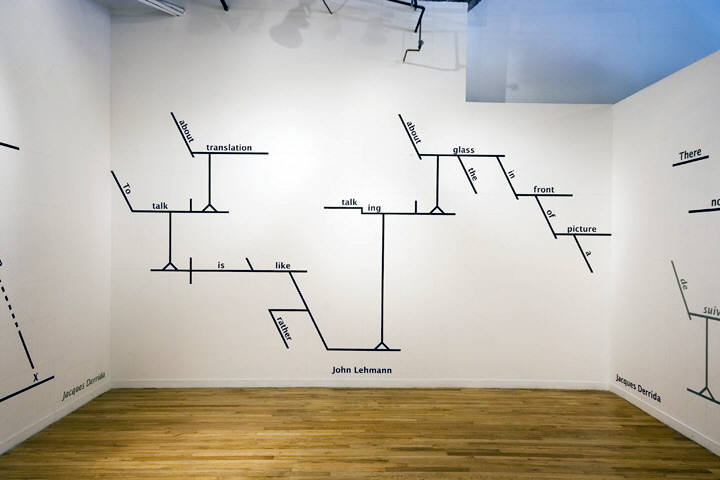| What are the words doing? How do they get from being specific bunches of sound
(or, for a further step, bunches of sound represented by little straight and curvy marks)
to communicating thoughts?
Words can be classified by the types of job they do:
- Verbs name actions -
both physical actions like "explode" and states of being like "seem"
- Nouns name things -
both concrete, material things like a "wall" and abstract, immaterial things like "beauty"
- Proper nouns name specific individuals with names that are distinctively their own,
like "Nicholas Knight"
- Common nouns name people or things generically, as belonging to a particular class, like "artists"
- Pronouns substitute for nouns, like "them" or "its"
- Adjectives describe nouns, as in "purple letters"
- Adverbs
- describe verbs, as in "the bicyclist careens dangerously"
- describe adjectives, as in "dangerously delicious chocolate"
- describe other adverbs, as in "a very dangerously ravenous tiger"
- Prepositions put nouns (or pronouns or noun-phrases) in relationships with other nouns
(or pronouns or noun-phrases), as in "in relationships" or "with
other nouns"
- Conjunctions connect nouns, verbs, or other elements of ideas
- Coordinating conjunctions link the items at the same level of priority, like "and"
- Subordinating conjunctions add an element at a lesser priority than the main idea, like "although"
- Interjections don't really belong to the rest of the idea but are tossed into association
with it, usually for emotional effect, like "Yippee!"
|

Nicholas Knight, Text/Texte |




